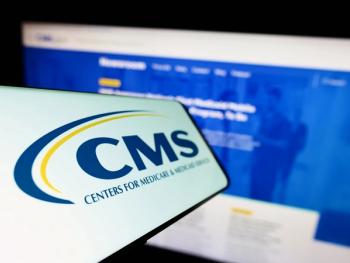
U.K. Moves Toward Outcome-Based Payment Model for First – and Very Expensive – Gene Therapy for Hemophilia B
Denmark has also set up a reimbursement arrangement for Hemgenix, which has a list price of $3.5 million in the U.S.
The United Kingdom is moving to cover Hemgenix, the first gene therapy for hemophilia B, using an outcome-based payment model that was designed to improve patient health while keeping costs low.
It would be the first gene therapy and the first advanced therapy to use an outcome-based model, according to CSL Behring, developer of Hemgenix (etranacogene dezaparvovec).
The National Institute for Health and Care Excellence recommended that the National Health System reimburse Hemgenix via a managed access agreement under the UK’s Innovative Medicines Fund,
The European Medicines Agency approved the gene therapy last December, following the FDA approval in November 2022. The one-time treatment carries a list price of $3.5 million in the U.S., making it one of the most expensive medicines in the world. Denmark recently became the first Nordic country to set up reimbursement of Hemgenix as the company seeks arrangements in nations throughout Europe.
Hemophilia B is a rare, inherited blood disorder caused by the mutation of a gene known as FIX, aka factor 9 or F9, that helps blood clot. It can be life-threatening if left untreated. People with the disorder bleed more or longer than normal when injured or having surgical or dental procedures. In its most severe form, hemophilia B can cause painful bleeding into the joints, leading to arthritis, and sometimespotentially deadly bleeds inside the brain, according to the
An estimated 4 in 100,000 men in the U.S. have hemophilia B. Estimates for women are less certain because they may have symptoms like heavy periods or excessive bleeding after giving birth that aren’t necessarily associated with hemophilia.
The gene mutation is on the X chromosome. If a mother passes one chromosome with the FIX mutation to a female child, she will be a carrier without symptoms because her other X chromosome is normal. But males have only one X chromosome, and so will develop the disorder if it carries the mutation. The disorder can also be caused by a spontaneous mutation in the embryo.
What is now known as hemophilia B was for years called the Christmas disease because a researcher in 1952 successfully treated a patient with the disorder using plasma from someone named Christmas.
Healthcare providers currently treat people with mild and moderate hemophilia B by injecting concentrated amounts of the clotting factor FIX into the bloodstream before a surgical procedure (or in the emergency department after an injury to stop the bleeding). Those with the severe version may need regular clotting factor replacement therapy.
The new gene therapy consists of a one-time injection of functional FIX gene into patients using a viral vector. The virus delivers the gene to the patient’s liver cells, which then produce functioning copies of the FIX protein, potentially ending the need for ongoing infusions of the clotting factor.
Hemgenix was approved after a clinical trial found that 94% of people responding to the treatment experienced an increase in FIX levels to the normal range, where it remained for the three years of the study. None of those people required additional clotting factor infusions.
Developer CSL Behring, which is based in King of Prussia, Pa. won approval for Hemgenix reimbursement under France’s experimental Direct Access process late last year, and signed its first commercial contract for reimbursement in Austria in March.
Another gene therapy for hemophilia B, Pfizer’s Beqvez (fidanacogene elaparvovec),
Newsletter
Get the latest industry news, event updates, and more from Managed healthcare Executive.























